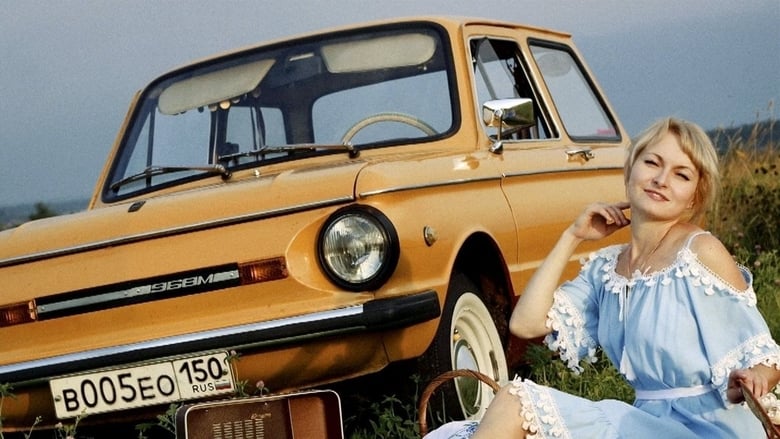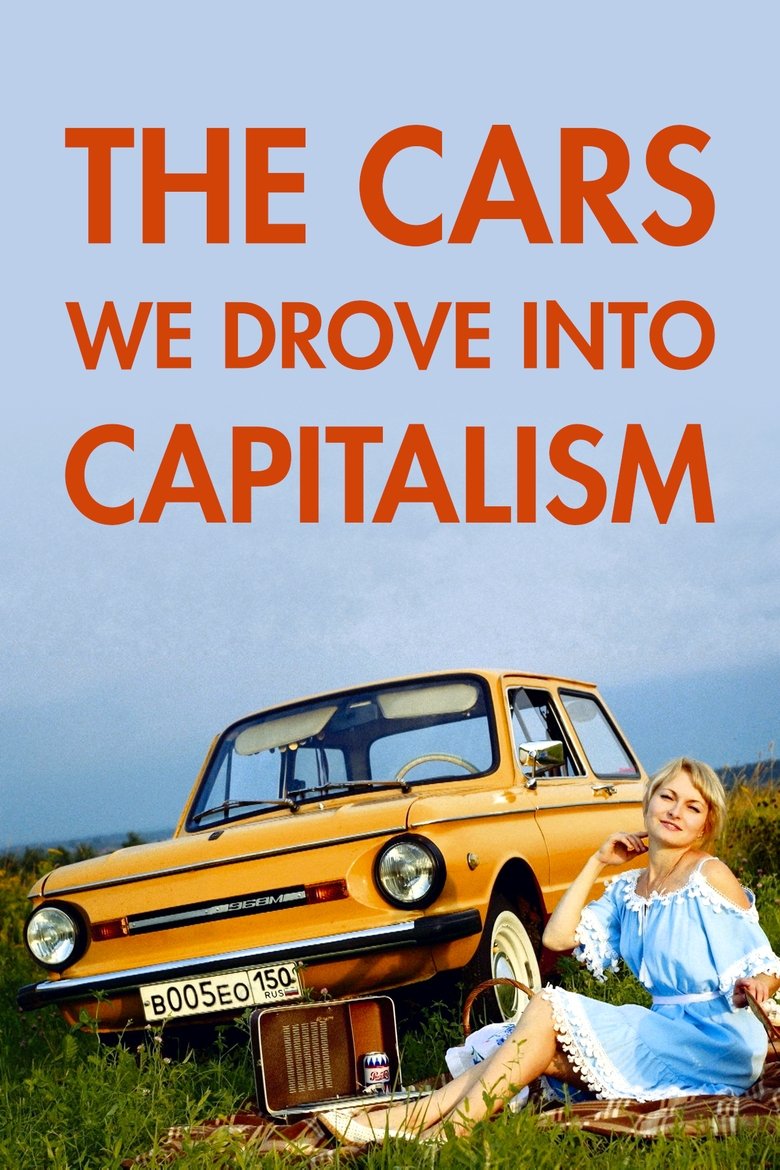Loading


The Cars We Drove into Capitalism
Genres
DocumentaryHistoryTV Movie
Overview
A cinematic, character-driven insight to what it meant to produce and to own a car in communist times: the Socialist propaganda dreams and the hard reality of living that dream. The freedom that these slow and clumsy vehicles were giving to their owners; the cars as an instrument in the Cold War battle; legends and homemade tune-ups as an attempt to stand at least a little bit off the crowd.
Details
Budget
$0
Revenue
$0
Runtime
93 min
Release Date
2021-10-27
Status
Released
Original Language
Bulgarian
Vote Count
2
Vote Average
7
Cast
Meet the talented actors who bring the movie to life.
Erich Honecker
Self (archive footage)
Todor Zhivkov
Self (archive footage)
Leonid Brezhnev
Self (archive footage)
Ronald Reagan
Self (archive footage)
Petar Klissarov
Self
Kristina Traktirova
Self
John Haugland
Self
Marion Mahlke
Self
Rolf Mahlke
Self
Neven Nevenov
Self
Tania Petkovska
Self
Nikita Rogushin
Self
Roman Savinov
Self
Similar Movies
Explore movies similar to this one that you might also enjoy.
7.3
The Scientist, The Imposter and Stalin: How to Feed the People
The documentary tells two very different human fates in the 1920s Soviet Union. Nikolai Vavilov was a botanical genius, Trofim Lyssenko was an agronomist who made great promises and fake inventions. Each of them tried to solve the country's nutritional problem, but only one succeeded.
2018-07-31 | fr
6.7
My Brother Is an Only Child
Accio and Manrico are siblings from a working-class family in 1960s Italy: older Manrico is handsome, charismatic, and loved by all, while younger Accio is sulky, hot-headed, and treats life as a battleground — much to his parents' chagrin. After the former is drawn into left-wing politics, Accio joins the fascists out of spite, but his flimsy beliefs are put to test when he falls for Manrico's like-minded girlfriend.
2007-03-28 | it
7.4
The Right Stuff
At the dawn of the Space Race, seven test pilots set out to become the first American astronauts to enter space. However, the road to making history brings momentous challenges.
1983-10-20 | en
0.0
Gummadi Narsaiah
2024-09-18 | te
6.5
Charlie Wilson's War
A Texas congressman sets a series of events in motion when he conspires with a CIA operative to aid Afghan mujahideen rebels fighting the Soviets.
2007-12-19 | en
3.7
Movie Hoarders: From VHS to DVD and Beyond!
Filmmakers and collectors lift the curtain on their manic media obsession that is not only a huge part of their lives, but the lifeblood of their existence!
2021-07-13 | en
6.8
The Day After
In the mid-1980s, the U.S. is poised on the brink of nuclear war. This shadow looms over the residents of a small town in Kansas as they continue their daily lives. Dr. Russell Oakes maintains his busy schedule at the hospital, Denise Dahlberg prepares for her upcoming wedding, and Stephen Klein is deep in his graduate studies. When the unthinkable happens and the bombs come down, the town's residents are thrust into the horrors of nuclear winter.
1983-12-10 | en
0.0
Nuclear Armageddon: How Close Are We?
With the Doomsday Clock the closest it's ever been to midnight, Jane Corbin investigates the proliferation of nuclear weapons across the globe. She visits Los Alamos, home to the United States’ nuclear weapons development facility and the historic home of Oppenheimer’s Manhattan Project. In Scotland, she reveals the strategy behind Britain’s nuclear deterrent, and speaks to campaigners in Suffolk fighting against US weapons they fear will be based on UK soil. Jane also discovers how many of the global agreements and safeguards that have constrained the spread of nuclear weapons since the 1970s are breaking down. This is a story told by the scientists, investigators and diplomats who set the clock and have fought to ensure that the ultimate deterrent has not been used in over 70 years.
2024-01-18 | en
0.0
Grandmother Told Grandmother
The little-known story of Ukrainian children torn from their homes in the crush between the Nazi and Soviet fronts in World War II. Spending their childhood as refugees in Europe, these inspiring individuals later immigrated to the United States, creating new homes and communities through their grit, faith and deep belief in the importance of preserving culture.
2018-10-07 | en
0.0
The KGB Connections: An Investigation into Soviet Operations in North America
Documentary - This 1982 film explains the KGB infiltration of America. Who they are, what they are doing, and how well they have infiltrated North America. - Harold Brown, Nikita Khrushchev, V.I. Lenin
1981-06-08 | en
0.0
Plánování plynulé výroby
1951-01-01 | cs
6.5
Mission to Mir
This film shows how far we have come since the cold-war days of the 50s and 60s. Back then the Russians were our "enemies". And to them the Americans were their "enemies" who couldn't be trusted. Somewhere in all this a young girl in Oklahoma named Shannon set her sights on becoming one of those space explorers, even though she was told "girls can't do that." But she did.
1997-10-17 | en
0.0
My Father's House
Recovering from a heart attack, a workaholic editor recalls the simple days of his youth. Robertson adds an emotional center to this messy, flashback-filled 'heavy' dramatic piece. Plenty of co-star talent.
1975-06-01 | en
0.0
Horny Kid - A film essay
The filmmaker's mother describes stories of his lustful youth over the phone, causing them to reflect on his current love life at the age of 30.
2022-12-15 | en
8.5
Una festa per la città - Venezia 1973
2023-06-14 | it
6.2
VHS Revolution
Using testimonies by pioneers and witnesses of the times, delve into the feverish visual culture the media generated – with far-fetched examples of canine television games, seduction manuals, aerobics class while holding a baby, among others.
2017-08-28 | fr
0.0
On Rubik's Road
Rubiks’ Road is a bicycle path built in the 1980s and named after Alfreds Rubiks, leader of the Latvian Communist party at the time. One of the most ferocious opposers to Latvia’s independence in the early 1990s and later elected to the European Parliament.
2010-04-05 | lv
0.0
MIGNOR
Showing Sergei Parajanov at the end of his life, the film depicts the suffering of a genius against the backdrop of general anxiety and carelessness.
1990-01-01 | en
6.1
Sight
Ming Wang is an impoverished Chinese prodigy who flees Communist China to become a pioneering eye surgeon in America. When tasked with restoring the sight of an orphan in India, who was blinded by her stepmother, Wang must confront the trauma of living through the violent uprising in his youth, the Cultural Revolution.
2024-05-24 | en
7.5
Cuba and the Cameraman
This revealing portrait of Cuba follows the lives of Fidel Castro and three Cuban families affected by his policies over the last four decades.
2017-09-08 | en